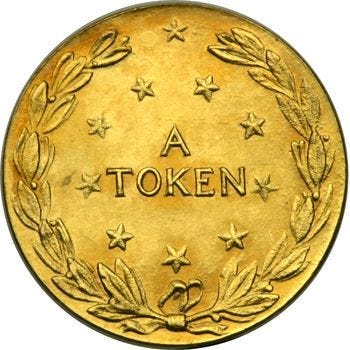Are Token Sales Unregulated? ICO-NO!
Initial Coin Offerings (ICOs) and Token Sales are all the rage in the news and numerous firms have raised money by selling units of virtual…

Initial Coin Offerings (ICOs) and Token Sales are all the rage in the news and numerous firms have raised money by selling units of virtual currency to fund their operations. A common refrain in the coverage of ICOs is that they aren’t regulated. Is that the case? Well, no. I will discuss why below, but first a needed disclaimer: the exact regulatory posture of a transaction is based on the facts and circumstances of that transaction. The following general information is not meant as legal advice. You do not pay me enough to be your lawyer.
With that out of the way, let’s get back to it. The reasons people think ICOs aren’t regulated is that they present a novel form factor (the virtual currency token/blockchain/whatever tech buzzword you want to use), the firms conducting the ICO haven’t filed a bunch of paperwork with regulators, and the regulators haven’t swooped down on them fangs bared (yet). But, the above doesn’t mean something isn’t subject to regulation, it just means regulators haven’t brought an enforcement action. Perhaps the ICO is in compliance (without realizing it), the regulator is exercising prosecutorial discretion not to bring an enforcement action in this case, or the regulator hasn’t mobilized yet.
Ok, but why are ICOs almost assuredly regulated? Because they are not actually that different. Rather, they are generally a new veneer on the means to achieve well-understood and regulated ends. Take for example a firm selling tokens to fund their development, with the value proposition for buyers being that the tokens will appreciate in value. As the fine folks at Coin Center point out a token could well qualify as a security under the definition laid out in the Supreme Court case of SEC v. Howey which defines investment contracts, a type of security as:
a contract, transaction or scheme whereby a person invests his money in a common enterprise and is led to expect profits solely from the efforts of the promoter or a third party, it being immaterial whether the shares in the enterprise are evidenced by formal certificates or by nominal interests in the physical assets employed in the enterprise (Id. at 298–299).
So to go back to the example above the buyer would be spending (investing) his money by buying the token sold by a firm (common enterprise) on the assumption the tokens will increase in value (profit) based on the work the firm does (efforts of a promoter or third party). That sounds like it could be a security to me (depending on facts and circumstances). It doesn’t matter that there is no transfer of ownership in the company; corporate bonds generally don’t convey an ownership interest and they are paradigmatic corporate securities. It doesn’t matter that there is no share certificate evidencing the transfer; after all, the Howey case was about an orange grove. If that is what your ICO looks like, odds are good it will be regulated as a security, even if you haven’t heard from the SEC or a state regulator yet.

But what if the ICO’s value proposition for the buyer isn’t appreciation of the asset? What if it is to “pre-sell” access to a service or product the firm plans to offer? Is that still regulated as a security? Maybe not, but not being regulated as a security isn’t the same thing as not being regulated at all. If the ICO is the pre-sale of a good or service it will be regulated as such, and the sale of goods and services are highly regulated. At the federal level the Federal Trade Commission (FTC), Consumer Financial Protection Bureau (for financial products), and Department of Justice all enforce rules governing sales, including but not limited to laws against fraud, discrimination, and unfair trade practices. For example, the FTC has gone after at least one person who said he was pre-selling a product on the internet and deceived his customers, so don’t think novelty is a shield. On top of that there are the states, which all have their own authorities.
The key issue to consider is not what wiz-bang tech is being used, but the underlying economic reality of the transaction. Just because we haven’t seen regulators acting aggressively yet doesn’t mean they won’t. The SEC is at least watching ICOs, and I’m sure other regulators are starting to as well. The wheels of regulation may grind slowly, but they also grind fine.
This isn’t to say that the regulatory environment in the United States isn’t onerous or outdated and couldn’t benefit from changes to make ICOs (at least the non-fraudulent ones) easier to do, but a trial is not the right venue to argue for those changes. Far better for the virtual currency industry to continue to work with Congress and the regulators to educate them on what should be changed to encourage innovation, and for the industry to police itself to show that overbearing government regulation is unnecessary. In the meantime, if you are thinking about launching an ICO, think about how you are regulated.

